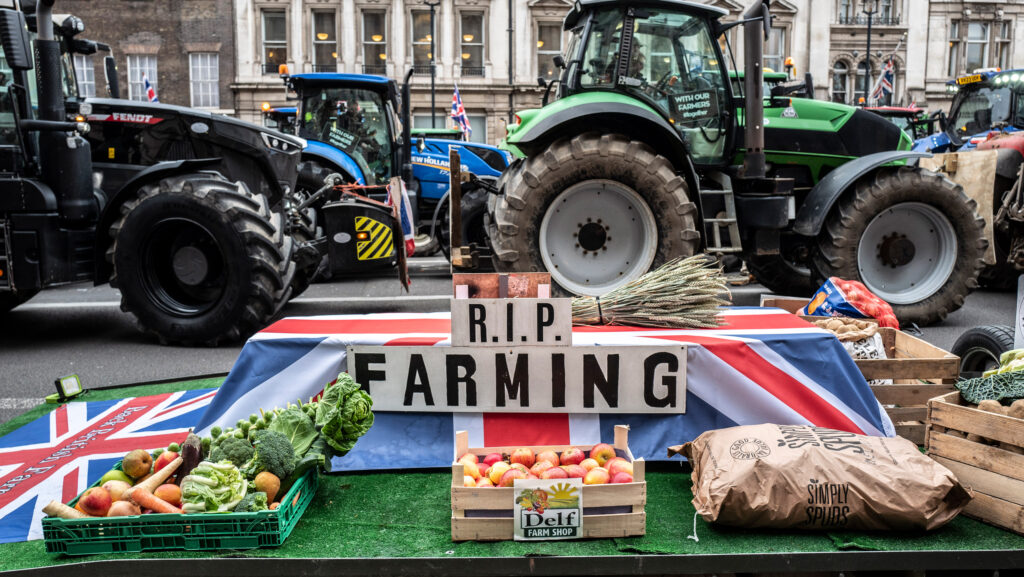Editor’s View: We’ve won argument on IHT but not the fight
 © Phil Weedon
© Phil Weedon The question of how to bring Labour to the negotiating table in order to extract sensible reforms to inheritance tax should not be a difficult one.
Were they to act in good faith, many of the arguments setting out why they are not going to achieve success – even on their own terms – would surely carry the day.
Instead, even as their arguments over how many farmers will be in scope have become evermore undermined, they have continued to insist that there is absolutely no egg on their face.
See also: Tractors take over London as farmers ramp up protests
And there has been no let-up in the pressure this week, with devastating new analysis from Jeremy Moody, secretary of the Central Association of Agricultural Valuers, as well as much honking of horns on Whitehall in the enormous tractor rally on Wednesday (11 December).
Yet chancellor Rachel Reeves remains as determined as ever not to reopen any of the Budget.
If neither devastating dissection of the detail nor attempts to show how widespread the farming fury is can change her mind, what is left in the locker?
The organisers of the rally in Westminster in November (which took place on the same day as the NFU lobbying) have one solution: broaden the base of support.
That’s the objective of their gathering at the London Palladium next Monday (16 December) – to bring farmers together with other business sectors also affected by the tax changes and try to crank up opposition across the economy.
Meanwhile, the NFU says it will shortly launch a banner campaign across the country, continue lobbying MPs and hold a cross-industry event at Lamma in the new year.
Is there anything else? It is usually at this point in a group conversation on the topic that someone mentions some form of direct action – strikes or blockades – that have an impact on food supply.
Clearly that is raising the temperature well beyond where it is now, adding a significant personal and financial risk to those involved directly as well as to farming’s reputation as a whole.
There is also no guarantee that it would not increase the determination of the government to hold firm, rather than send a signal that it will capitulate to troublemakers.
Those are the downsides. The upside, of course, is that sometimes it works. The government has already settled pay disputes with striking workers in some sectors to make problems go away.
Listening this week to political journalist Tim Shipman’s final book on the story of Brexit, Out, I was transported back to the Boris Johnson era.
There are various reasons why he managed to secure a withdrawal agreement and trade deal with the EU when his predecessors couldn’t.
When Theresa May said “no deal is better than a bad deal”, no one believed her. When Johnson resolved to “get Brexit done”, they did.
Allies say he was skilled at the “madman” style of negotiating – raising the stakes to a point where others felt they had to make concessions rather than find out if he was bluffing.
Let’s hope it doesn’t get to that point with the Budget, and the more sensible options prevail. Conversation is always preferable to chaos.

